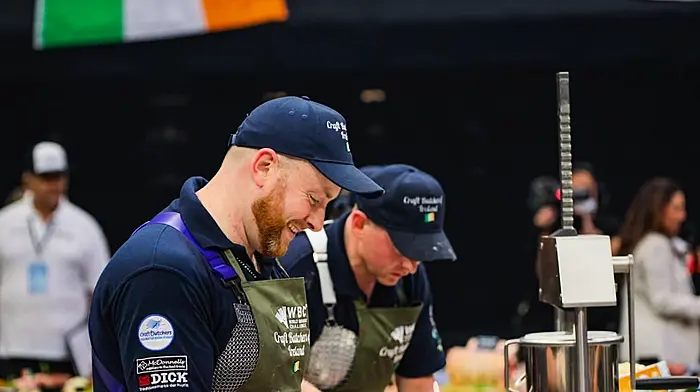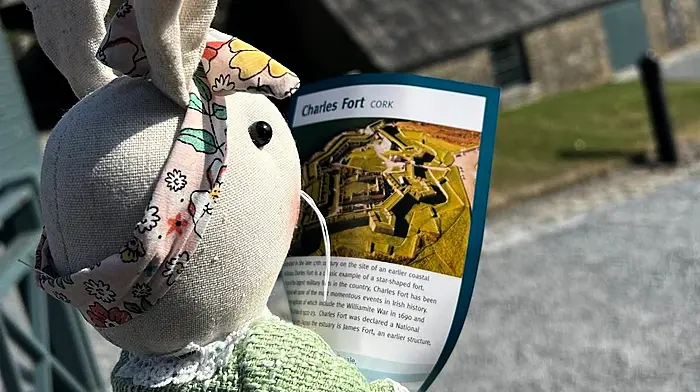Food, glorious food. This week the pages of The Southern Star are filled with stories of sustenance, from Robert Hume’s recollections in Times Past, to two local men who’ve been recognised for their commitment to food, one each a chef and a butcher.
That said, there is a stark difference between what is being celebrated when we take a step back and consider the broader world of food and ingredients.
Robert’s piece recalls the long days of Lent and the subsequent celebration of Easter, marked by food either in indulgence or abstinence.
What is telling is the narrow choice of goods mentioned: the simplicity of eggs, fish, and the special value placed on chocolate.
Nothing in the piece suggests that anyone had a craving for a white chocolate and raspberry hot cross bun in those leaner times., but nothing suggests any hint of deprivation either - just satisfying and good food.
On the other side of the scale, when we look at the achievements of Leap butcher Ger O’Callaghan in Paris, the sheer mass of flesh described in the ‘the Olympics of meat’ would test the most hardened omnivore.
However, the competition also judged the butchers for their ability to make the most of a carcass, an aspect of cooking and eating that is criminally overlooked in many Irish kitchens.
This talk of food comes against the paused tariffs from the US side of the pond, and while we won’t likely suffer from a lack of meat, milk, or cheese, should a trade war break out we may have to take that step back and look closer at home-grown ingredients, and not as a highfalutin trend but as a reality.
The fact is that the US is a major exporter of nuts (pistachios, almonds, and walnuts), as well as oranges, cherries, strawberries, and sweet potatoes. Should a trade war to come to fruition (ahem), it would be reasonable to see the prices of these ‘essentials’ go up.
Supermarket shelves, and even ‘farmer’s markets’ labour and bulge with the weight of tons of foods that would be unrecognisable to many farmers at a market even 20 years ago.
There is nothing immoral or wrong with this, per se, but it has created some highly unrealistic expectations about the ingredients and food we believe we need for a basic diet.
One example of this disconnect from food has to be the hysterical status suddenly attributed to protein, where the protein found in eggs, flaxseed, or a piece of free-range chicken is nothing in a gym bro’s eyes compared to the giant plastic tub of magic protein powder.
While we have an almost unlimited choice of food and ingredients, we continue to get fatter and unhealthier.
Meat consumption is too high; not only is it a major contributor to global warming, it is also is linked to cardiovascular disease with the startling fact that there are 16 heart attacks a day in Ireland.
There is no simple answer, either; to turn to a plant-based diet requires a high degree of education in food, and is reliant on food imports including chickpeas and soybeans. Less, and higher quality, meat is the most likely way forward, where every piece of the animal is used. Yes it’ll be more expensive, and it should be.
Add to this conversation the question of boycotts on ethical grounds.
The war Israel is waging on the Palestinian people has invigorated people to boycott goods, though not with the same kind of energy that led Mary Manning and other Dunnes Stores workers to start a movement that led to Ireland banning South African imports in 1987.
Food is celebration, but it is also political.
A shelf in Ireland today points to the material wealth of a country, and tells us everything about the health of the country too.
When good milk is being poured down the sink, or meat turns brown on the shelf, or a recipe hinges on a very specific type of artichoke, something has gone seriously awry.
Should tariffs be implemented, it will force households to reassess their shopping habits and give both food, and its producers, the respect they demand.









